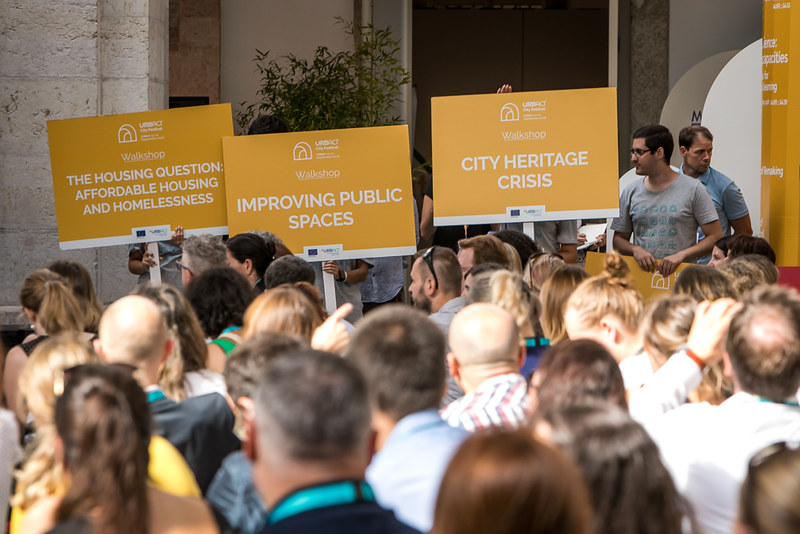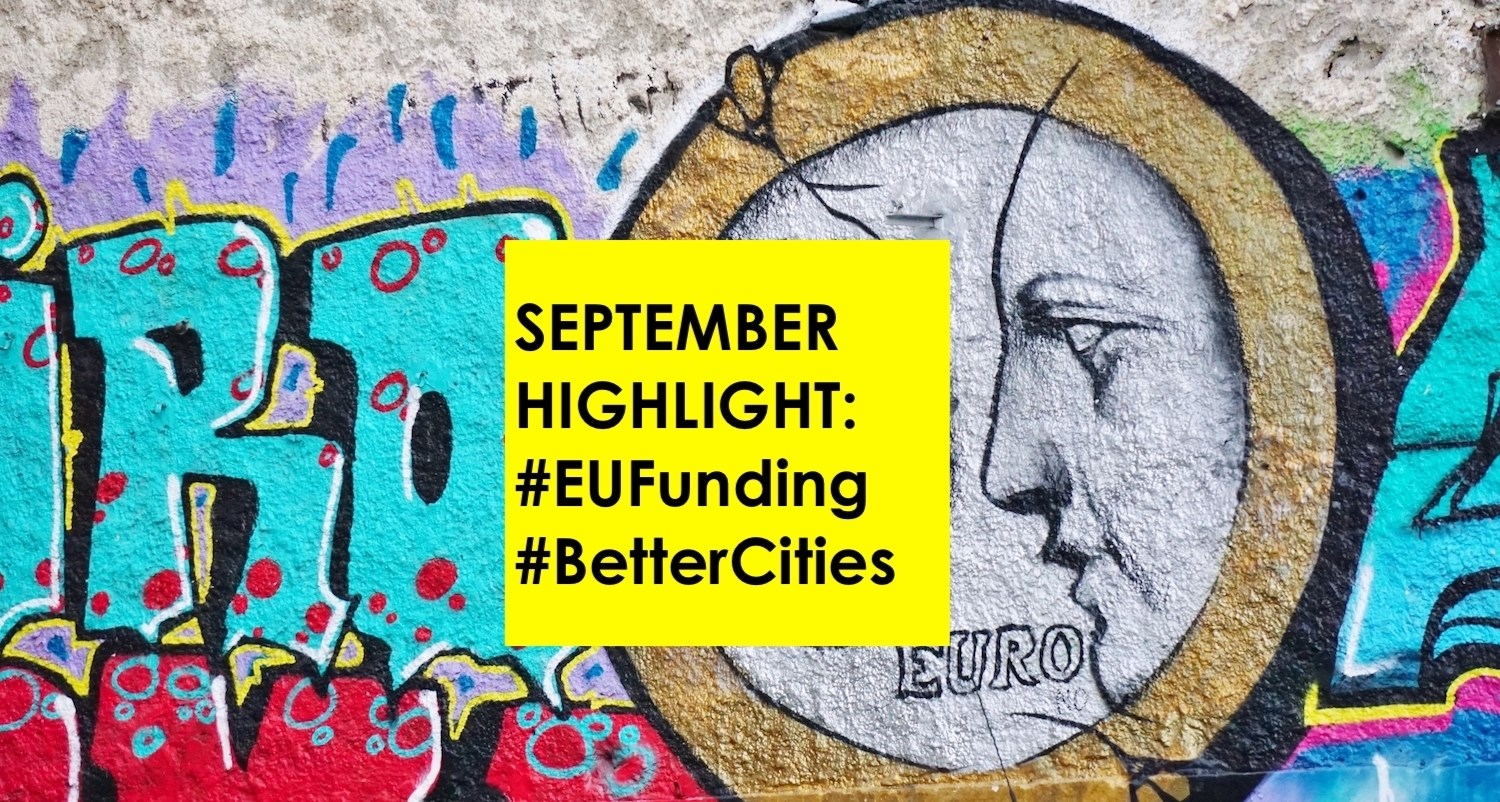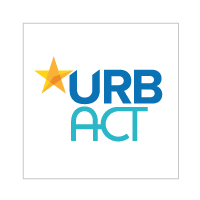EU Urban Agenda: what can URBACT cities bring to the table?
Edited on
09 October 2019This article explores the synergies between URBACT and the Urban Agenda for the EU.

The 23 new and diverse URBACT Action Planning Networks (APNs) that officially kicked-off their work in Paris in September 2019 have a clear understanding of the policy challenges they will address. They are ready and willing to influence decision-making at the national and EU levels. The Urban Agenda for the EU, in particular, offers a strategic platform to scale up their actions and influence policy.
How does URBACT fit into the European Agenda for the EU?
Since the 2016 Pact of Amsterdam set out the principles of the Urban Agenda for the EU, 14 partnerships have been set up. Each partnership allows cities, Member States, EU institutions and other stakeholders, such as NGOs and business partners, to collaborate and develop an Action Plan aiming for better regulation, better funding and better knowledge related to the theme of the partnership.
Feeding knowledge from networks to the Urban Agenda partnerships
URBACT has participated in the Urban Agenda for the EU since 2016. The Secretariat formally has an ‘observer’ role in each partnership and is actively feeding in knowledge from its networks. A number of URBACT cities are also directly involved in a partnership. For example, Preston (UK), Lead Partner of the APN Procure and the Transfer network Making Spend Matter, was accepted in the Partnership on Innovative and Responsible Public Procurement. Making Spend Matter Lead Partner Coordinator, Tamar Reay, and Network Expert, Matthew Baqueriza-Jackson, are co-leading on the partnership’s action on measuring procurement spend, alongside Preston City Council.
Matthew said: “Involvement in the Urban Agenda Partnership enables URBACT to be at the forefront of progressive thinking around procurement. We have used experience from our Action Planning and Transfer Networks to develop, refine and share with a wider audience of cities and the Commission examples of innovative and exciting approaches to public procurement. This includes the Spend Analysis approach of Preston City Council and expertise around how procurement can be used to address wider economic, social and environmental challenges”.
Implementing the partnerships’ recommendations at city level
Cities are in a strategic place to create synergies and maximise linkages among activities from different Partnerships and other EU programmes. For example, the cities of The Hague (NL) and Oslo (NO) have a long history of working together to develop solutions based on a circular economy. Both cities have taken a leading role in the Partnership on Circular Economy – Oslo as a coordinator and The Hague as a member. When the Partnership period came closer to an end, members of the Partnership wanted to ensure continuity in delivering their action plan. They identified URBACT as a vehicle to continue to implement the actions related to urban resource centres. In June this year, The Hague successfully won its bid to lead the Resourceful Cities APN to develop and future-proof the next  generation of local recycling stations, alongside Oslo and eight other cities. They received applications from nearly 50 cities to join the network and are now looking at creating an extended network to continue to collaborate with these cities and build on the momentum generated by the Urban Agenda Partnership and the APN call.
generation of local recycling stations, alongside Oslo and eight other cities. They received applications from nearly 50 cities to join the network and are now looking at creating an extended network to continue to collaborate with these cities and build on the momentum generated by the Urban Agenda Partnership and the APN call.
The network ROOF is another example of a new APN that has emerged within the Urban Agenda framework. In September 2018, URBACT organised a session during the URBACT City Festival in collaboration with the Urban Agenda Partnership on Housing focused on the Partnership’s Action Plan. In December 2018, URBACT co-organised a follow-up Policy Lab in Paris with FEANTSA (European Federation of National Organisations Working with the Homeless) on the topic of homelessness. The event explored concrete ways cities can deliver the targets set by the Urban Agenda Partnership on Urban Poverty. The city of Ghent (BE) presented the Housing First model as a way to tackle and prevent homelessness. A few months later, Ghent successfully applied to lead the network ROOF that will continue to test the Housing First model over the next two and a half years, alongside seven other cities, including cities already involved in the Urban Agenda Partnerships on Urban Poverty and on Housing.
Significant progress has been made since the signature of the Pact of Amsterdam. The Urban Agenda for the EU has proven to be an effective platform to bring cities, Member States and other stakeholders together. Cities have been a driving force behind many actions of the partnerships, once again demonstrating that they have a crucial role to play in EU policymaking.
Where can URBACT add value?
In this complex and changing landscape of EU policymaking and in preparation for the future EU Cohesion policy, URBACT will continue to contribute through:
- A robust and tested methodology – URBACT brings a focused and transparent method that builds the capacity of towns and cities – in any context - to engage local stakeholders and learn from and inspire their peers through transnational exchange.
- A wealth of knowledge and experience – URBACT provides cities with opportunities to develop new knowledge, to test and scale-up ideas and identify and transfer good practices. It is crucial to feed this knowledge and these lessons into EU policymaking, not only on the themes of the partnerships but also on cross-cutting issues such as gender inclusiveness or the vitality of smaller cities.
- A commitment to multi-level governance – URBACT has always worked with cities - including small and medium-sized cities - that want to have a say on policy issues. URBACT can and does help feed these powerful experiences and voices from the ground into the Urban Agenda Partnerships and other policymaking forums as part of efforts to improve approaches to effective multi-level governance.
- Outreach – Since the beginning of URBACT I, URBACT has built an informal network of ‘URBACT cities’, supported by National URBACT Points in each EU Member State. This brings a valuable capacity to capitalise and promote lessons, knowledge and messages to urban audiences across Europe.
Read more about the links between URBACT and other European Programmes and funding streams: urbact.eu/tags/eu-funding

 Submitted by URBACT on
Submitted by URBACT on




